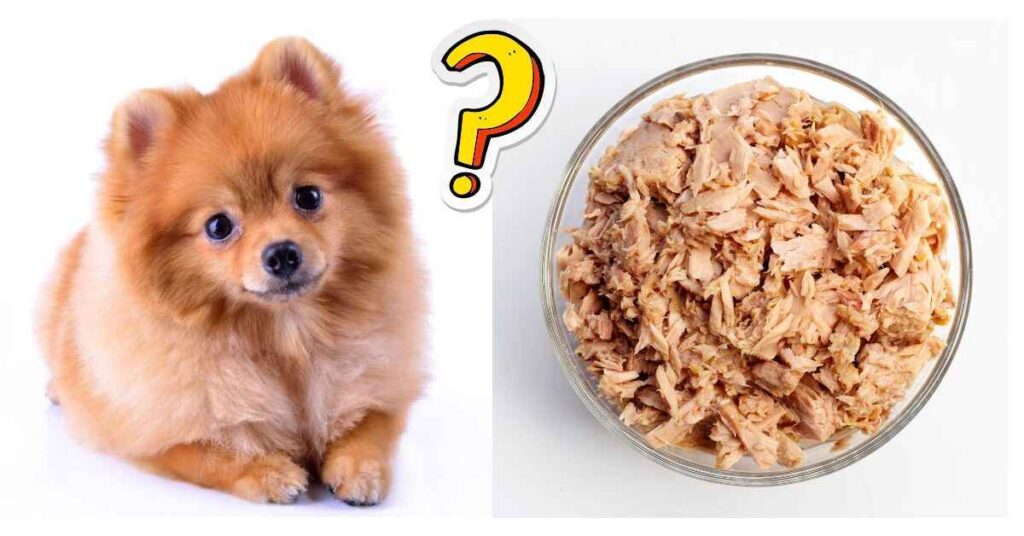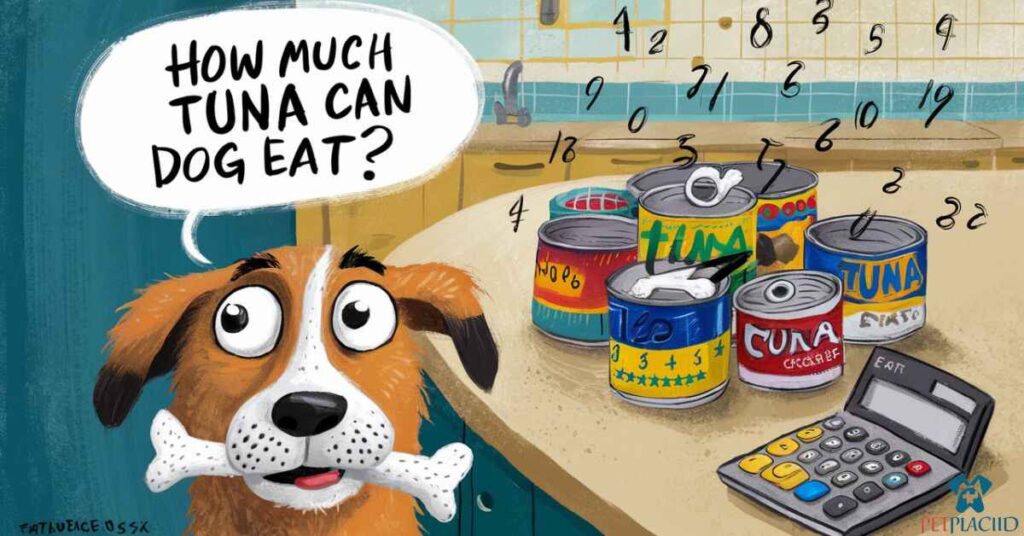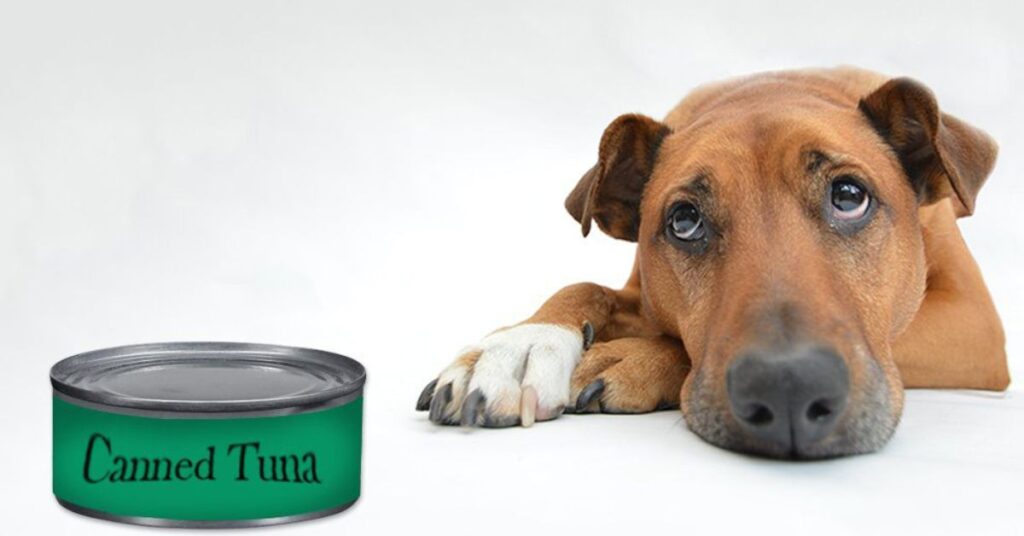As a dog owner you may have wondered if it’s safe to share your tuna sandwich or canned tuna with your furry friend. While tuna can be a tasty and nutritious treat for dogs in moderation, there are some important considerations to keep in mind. In this blog post we’ll dive into the benefits, risks, and safety guidelines for feeding tuna to your canine companion.
Is Tuna Good for Dogs?
Tuna is an excellent source of protein, omega-3 fatty acids and essential nutrients like selenium and vitamin D these nutrients can benefit your dog’s skin, coat, and overall health. Tuna is also low in calories and fat, making it a lean option for dogs watching their weight.
However tuna does come with some risks that you should be aware of before adding it to your dog’s diet.
Why is Tuna Sometimes Considered Harmful to Dogs?
While tuna can be a healthy treat in moderation there are a few potential risks to consider:
It May Pose a Risk of Mercury Poisoning
One of the main concerns with feeding tuna to dogs is the potential for mercury poisoning. Tuna is a predatory fish that can accumulate high levels of mercury in its tissues. Too much mercury exposure can lead to neurological issues kidney problems and other health complications in dogs.
Bones Can Be a Choking Hazard
If you’re feeding your dog canned tuna be cautious of any small bones that may be present. These bones can splinter and become a choking hazard or cause internal injuries if swallowed.
It Has a High Salt Concentration
Many canned tuna varieties contain high levels of sodium, which can be problematic for dogs with certain health conditions or those on a low-sodium diet. Excessive sodium intake can lead to dehydration electrolyte imbalances and potentially more severe issues like kidney disease or hypertension in dogs.
Can Puppies Have Tuna?

While tuna can be an occasional treat for adult dogs it is generally not recommended for puppies. Puppies have different nutritional needs than adult dogs and are more susceptible to the potential risks associated with tuna such as mercury poisoning. It is best to stick to a high-quality balanced puppy food and speak with your veterinarian before introducing new foods to a puppy’s diet.
Can Dogs Eat Raw Tuna?
Raw tuna poses a significant risk of bacterial or parasitic infections, such as salmonella or anisakis, which can cause severe illness in dogs. It is best to avoid feeding your dog raw tuna, as cooking eliminates these potential hazards.
What Should I Do if My Dog Accidentally Eats Tuna?
If your dog accidentally ingests a small amount of tuna there’s usually no need to panic. Monitor your dog for any signs of gastrointestinal upset such as vomiting or diarrhea and contact your veterinarian if you have any concerns. However if your dog has consumed a large quantity of tuna or shows signs of distress, seek veterinary attention immediately.
What Fish Can I Safely Feed My Dog? Can You Feed Dogs Canned Tuna?

While tuna can be an occasional treat for dogs there are safer fish options to consider:
- Salmon: A great source of omega-3 fatty acids and protein. Look for canned or cooked varieties without added salt or seasonings.
- Whitefish: Low in mercury and a good source of protein. Cod tilapia, and Pollock are excellent options.
- Sardines: Rich in omega-3s and calcium. Choose low-sodium varieties packed in water.
As for canned tuna, it can be fed to dogs in moderation as long as it is packed in water and doesn’t contain any added flavorings or preservatives. However it is essential to be mindful of the potential risks we’ve discussed.
Risk #1: Tuna May Cause Mercury Poisoning
As mentioned earlier tuna can accumulate high levels of mercury due to its predatory nature. Symptoms of mercury poisoning in dogs can include:
- Lack of coordination
- Vision problems
- Excessive panting or drooling
- Vomiting or diarrhea
To minimize the risk of mercury poisoning, it is recommended to limit your dog’s tuna intake to no more than one 3-5 ounce can per week.
Risk #2: Tuna May Have Parasites and Contamination
Raw or undercooked tuna can harbor parasites and bacteria that can make your dog seriously ill. Always ensure that any tuna you feed your dog is cooked thoroughly to eliminate these potential hazards.
Risk #3: Tuna Has High Sodium Levels
Many canned tuna varieties are packed in salty water or oil which can contribute to excessive sodium intake in dogs. Too much sodium can lead to dehydration, electrolyte imbalances, and potentially more severe issues like kidney disease or hypertension.
To reduce the sodium content opt for canned tuna packed in water and rinse it before serving.
When is Tuna Bad for Dogs?

While tuna can be an occasional treat for most dogs there are some situations where it should be avoided altogether:
- Dogs with kidney disease: Tuna’s high sodium content can exacerbate kidney issues.
- Dogs with pancreatitis: The high-fat content in tuna can trigger or worsen pancreatitis.
- Dogs with food allergies or sensitivities: Some dogs may be allergic or sensitive to fish or seafood.
If your dog falls into any of these categories, it’s best to avoid feeding them tuna and consult with your veterinarian for safe treat options.
Can Puppies and Pregnant Dogs Eat Tuna?
As mentioned earlier tuna is generally not recommended for puppies due to their developing systems and increased susceptibility to potential risks like mercury poisoning. It is best to stick to a balanced high-quality puppy food and speak with your veterinarian before introducing new foods.
Similarly pregnant or nursing dogs have increased nutritional needs and may be more sensitive to the potential risks associated with tuna. It is advisable to consult with your veterinarian before adding tuna to a pregnant or nursing dog’s diet.
Related Post: Can Dogs Eat Ritz Crackers? Yes, But Read This First
How to Serve Tuna to Your Dog
If you decide to feed your dog tuna as an occasional treat, here are some tips for serving it safely:
- Choose water-packed tuna: Opt for tuna packed in water rather than oil or other flavorings, which can add unnecessary calories and potential gastrointestinal upset.
- Rinse the tuna: Rinsing canned tuna in water can help reduce the sodium content.
- Remove any bones: Carefully inspect canned tuna for any small bones and remove them as they can be a choking hazard or cause internal injuries if swallowed.
- Serve in moderation: Tuna should be treated as an occasional treat rather than a regular part of your dog’s diet. Follow the recommended serving guidelines based on your dog’s size and activity level.
How Much Tuna Can My Dog Eat?

The recommended serving size for tuna varies based on your dog’s size and activity level. Here’s a general guideline:
- Small dogs (under 20 lbs): No more than 1/4 can (3 ounces) per week.
- Medium dogs (20-50 lbs): No more than 1/2 can (6 ounces) per week.
- Large dogs (over 50 lbs): No more than 1 can (12 ounces) per week.
I is important to remember that these are maximum recommended amounts and that tuna should be treated as an occasional treat rather than a regular part of your dog’s diet.
Which Types of Fish Can Dogs Eat?
While tuna can be an occasional treat for most dogs there are other fish options that may be safer and more suitable for regular consumption:
- Salmon: An excellent source of omega-3 fatty acids protein, and various vitamins and minerals.
- Whitefish (cod, tilapia, pollock): Low in mercury and a good source of lean protein.
- Sardines: Rich in omega-3s calcium, and other essential nutrients.
- Herring: A good source of omega-3s and vitamin D.
When introducing any new type of fish to your dog’s diet, it’s always best to start slowly and in small amounts to monitor for any potential allergic reactions or digestive issues.
Conclusion
while tuna can be an occasional treat for most dogs, it is important to be mindful of the potential risks, such as mercury poisoning, high sodium content, and potential for contamination or parasites. By following the recommended serving guidelines and choosing safer fish options when possible, you can ensure that your furry friend enjoys the.

Jackson is a seasoned professional in the field of pets, boasting four years of enriching experience. His expertise spans pet care, training, and health, ensuring insightful and reliable content for pet enthusiasts on our site.







